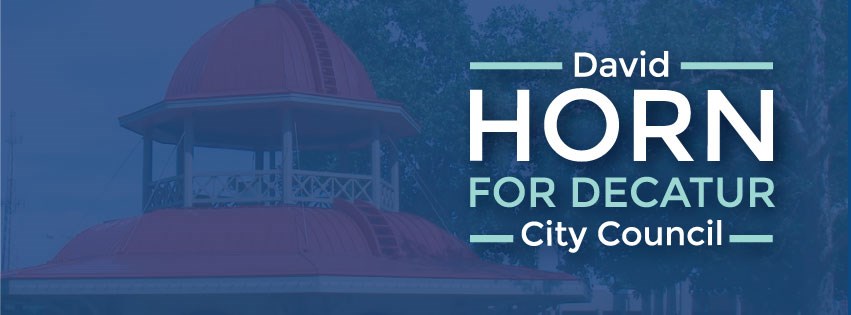
New policies associated with demolition, annexation, and disposition of surplus lots to be discussed at the next Decatur City Council meeting
The city council will also consider: approving four businesses at a total cost of $352,785 to mow vacant lots and properties not in compliance with city code; approving funding for the repair and maintenance to the air handling system of the library facility ($613,457); accepting a bid to replace 12 pre-existing bus stops with new pads that are larger and ADA compliant ($115,806); purchasing the property at 1980 North Brush College Road and providing funding for business relocation as part of the Brush College Rd. improvement project ($2,000,000); purchasing six new Ford Explorer Police vehicles ($320,969); repairing the Lake Decatur dam gates ($171,206); and annexation of 26 additional properties. Finally, the city council will consider approving the fence around this year’s Decatur Celebration.
Below is additional information regarding new policies associated with demolition, annexation, and disposition of surplus lots.
DEMOLITIONS – Funds permitting, the city will now consider requests for voluntary demolition of unsafe, derelict structures within the city. The city has established criteria including whether the demolition will advance the city’s goals for neighborhood revitalization. I am supportive of voluntary demolitions because it should accelerate the removal of unsafe, delipidated structures in the city. Furthermore, while the city will incur the cost of demolition, it may ultimately cost less to perform voluntary demolitions than more traditional means. Currently, the city’s neighborhood revitalization initiatives are not keeping pace with the deterioration of residential properties that many parts of the city are experiencing. This policy gives the city another tool to remove blight, stabilize property values, and improve citizen safety and well-being in their neighborhood.
DISPOSITION OF CITY-OWNED SURPLUS LOTS – This new policy creates parameters under which the city can sell, trade, or donate its surplus property and attempt to put properties into their highest and best use. The policy creates four categories of surplus properties: 1) side-lots (lots which may have a productive use to an adjacent property owner), critical mass/assemblage opportunities (lots that can be adjoined to create a critical mass for a redevelopment project), developable in-fill lots (lots that could be sold as autonomous developments such as residential), and rehab structures and parking lots (lots that include a structure that has the potential to be rehabilitated such as a commercial building).
PURCHASING SIDE LOTS - As part of the new policy discussed above, the city is creating criteria for those wishing to purchase a side lot. Furthermore, a separate item to be voted on will allow non-permanent accessory structures such as garden sheds and children’s play equipment on side lots. The inability to have these structures on side lots previously may have been one barrier to individuals acquiring them in the past.
ANNEXATIONS – Among the highlights of the proposed annexation policy is that “property owners located outside the city limits and requesting to receive water connection, or any other service, will be required to annex into the city as a condition of provision of service. If the requesting land owner’s property is not physically contiguous with the city corporate boundary, the property owner will be required to meet with property owners who would create or permit a contiguous connection in order to become contiguous …” These new policies should facilitate a faster annexation process for those that sign water service agreements in the future.
AGENDAS FOR CITY COUNCIL MEETINGS ARE AVAILABLE ONLINE - An agenda to each city council meeting can be found at: https://www.decaturil.gov/mayor-and-council/council-meetings/.
Citizens can attend meetings and express their views. However, given the Coronavirus (COVID-19) national emergency, please consider watching the city council meeting on television or via the city's website, particularly if you are not planning to address the council.
Citizens are allotted 3 minutes per person near the beginning of each city council meeting. In addition, citizens can provide comments regarding one regular agenda item per meeting for up to three minutes provided they notify the city in advance (and prior to the start of the meeting). You can request to speak on a particular agenda item at a council meeting by filling out an on-line form at: https://www.decaturil.gov/mayor-and-council/advance-request-to-speak-at-council-meeting/. Meetings take place at the City Council Chamber located on the third floor of the Decatur Civic Center (1 Gary K. Anderson Place). Free parking is available in the lot immediately south of the entrance.
CITIZENS ARE ENCOURAGED TO PROVIDE FEEDBACK TO CITY COUNCIL MEMBERS – If you would like to discuss an issue with a city council member, phone numbers and e-mail addresses for each council member can be found at the following link: https://www.decaturil.gov/mayor-and-council/council/.
